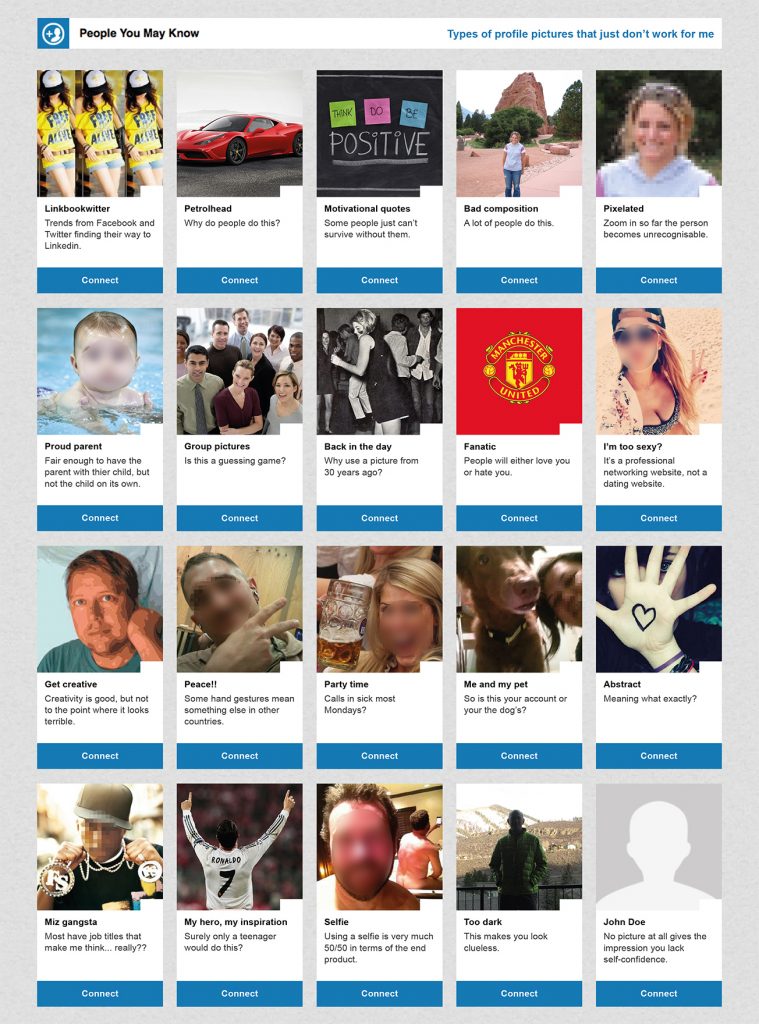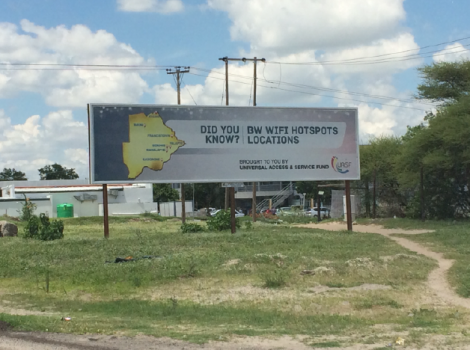
Sometimes when reading through various Facebook posts, I can’t help but cringe when I see some of the things people post. It’s only natural for tempers to flare during explosive debates between people who hold divergent views. However, the language on social media platforms can take a turn for the downright ugly, with people hitting below the belt, using foul, caustic language and sometimes even being blatantly racist. The kind of vitriol that some people put out there has been so ugly that even President Mokgweetsi Masisi has made an impassioned plea to the nation to refrain from such conduct on more than one occasion.
It’s a free world, and in Botswana, we enjoy the freedom of speech. However, with advances in technology, Big Brother is always watching, so you don’t always know who is watching.
Modern day employers often use social networking sites to look into candidates during the hiring process. Employers now check up on current employees on social media too.
Before you apply for any job, take some time to look at your social media pages. According to a CareerBuilder survey of employers, over 50% of employers have found social media content that has discouraged them from hiring a candidate.When posting, try to see your content through the eyes of someone who has never met you.
Most people feel social media is their private network of friends and followers where they can share whatever is on their minds, whenever, wherever. What we often forget is that while these musings may indeed be private, they are in the public domain for everyone to see, including your potential employers and prospective business partners. Countless studies show that more and more employers consider a candidate’s social media activity when hiring, while HR practitioners have had second thoughts about employing a candidate after seeing their social media activities.
With that in mind, if you are looking for a new job or toying with the idea of a career change, you might want to clean up your attitude where your digital footprint is concerned. Keep reading to learn how to avoid ruining your chances of landing your dream job or winning that coveted business tender.
1. Posting unsavoury comments
Any comment designed to offend another person or group could cost you your job. Wherever you are on the Internet, avoid posting offensive comments, even if they’re meant as a joke. Remember, your online behaviour can come back to haunt you. When emotions are running high, you need to be especially careful about slinging mud and butting heads online or insulting people with different viewpoints to yours.
Each time you feel like you could explode from the sheer rage you’re feeling, step away from your computer, take a break to consider how your words are likely to be perceived. You might also want to be prudent and get rid of any damaging comments you’ve left anywhere online. Granted, once it’s out there, someone somewhere may already have started spreading it!
2. Posting photos of you boozing it up and falling down drunk
You and your friends might see being drunk as a badge of honour. But let’s face it, no employer would be enthralled to constantly see pictures of their employee necking booze and falling down drunk. You may do it in your own time away from work, but it’s not a good look and will reflect badly on a company. And no company will stand for that.
Before you know it, your employer may start looking closely at the quality of your work and trying to ascertain if there’s any correlation between your booze-up sessions, and the slightest missteps you make at work could spell the end of your job.
3. Spelling and grammar errors
Before you post anything online, make sure your spelling is on point and use correct grammar. Recruiters often cite poor spelling and grammar on social media platforms as a solid reason for rejecting applicants.
4. Posting racist hate-filled comments
It’s never a good idea to post disrespectful things, but it’s even more reckless to do so on any of your social media accounts. An eagle-eyed recruiter will go through your post history on the trail of red flags like aggressive tweets, illegal stuff, very unpopular opinions or badmouthing someone publicly.
This is especially problematic if the comments are about your colleagues or clients. Any offensive comment has the potential to go viral, and it’s never a good look for any company. No business wants the PR bomb that comes with an employee’s poor choice of words on Twitter or Facebook. So, bear this in mind whenever you think of posting anything explosive. Employers have been known to distance themselves from ‘offenders’ by dropping them like they are hot faster than you can blink!
5. Sharing controversial jokes
With the amount of content we share all through the day, it’s easy to mindlessly share stuff without looking at it properly. Sharing jokes and TikTok videos is a favourite pastime for many people these days. It is always prudent to make sure whatever content you pass on is not in any way offensive. Take time to consider how such content is likely to be perceived. Be especially wary of sensitive topics such as religion and politics. Many recruiters see political rants as a red flag.
Choose to keep your most contentious opinions to yourself and your closest personal friends. What you share or say online is seen by many people, some of whom don’t really know you. So not everyone will always get that something you post is meant to be a joke.
6. Complaining About Your Previous Employers Online
Never rush to rant about work online. If you have had the day from hell, social media is NOT the place to offload. Recruiters do not take kindly to this sort of thing. Naturally, they’ll have every reason to think you’d do the same to them were they to employ you.
Even if your views are justified, it’s not always easy to convey the context of the situation on social media like Twitter where you are limited to 280 characters. As such, you risk looking like a bitter employee. So, if you need to offload about a work-related matter, lean heavily on your loved ones rather than social media.
7. Mocking your customers
Taking to social media to badmouth clients is a no-no because it reflects very badly on your company. Remember, you’re representing the company, not yourself. What’s more, you come over as highly unprofessional and unemployable. A definite no-go zone.
8. Not having any social media profiles
Some people avoid social networks like Facebook, Twitter and Instagram for privacy reasons or to reduce phone usage. If that is you, you may want to consider at the very least having a profile on LinkedIn because having no social presence at all can harm your job prospects.
According to the results of CareerBuilder’s annual survey on social media recruitment, 35% of employers are less likely to interview applicants they can’t find online. The study found that modern-day hiring managers now used social networking sites and web searches to research prospective employees.
In this digital world, you are invisible online if you aren’t on any social media platform. Various studies have shown that some employers view this as an issue, with others seeing it as suspicious. Some might consider you to be out of touch with technology or worse still, resistant to change.
How to be smart on social media
Think seriously about how you’re likely to be perceived based on your comments and interactions on social media. Your conduct could lose you your dream job before you’ve even secured it. Be careful about what and how you post information online.
Think long and hard before you post. If you have any doubts, don’t post that comment. Once you’ve posted your view, it’s very hard to take it back. For instance, a deleted Twitter or Facebook post can go viral and take on a life of its own through screenshots and sharing.
Be prepared for the consequences if you post something inappropriate. Chances are that someone will see it, which may land you in hot water. It’s easier not to post in the first place, so you don’t have to worry about it getting noticed.
Lastly; got the job? Be careful once on the job!
Employers continue to monitor employees’ online presence even after they’re hired. Studies have shown nearly half of employers (48 %) say they use social networking sites to research current employees— 10% do it daily. A third (34%) have found content online that caused them to reprimand or fire an employee.
With all this in mind, it might be time to think long and hard before you spew highly offensive content on social media. Stop and think how it’s likely to affect others, impact on your life and be perceived by countless other people out there.
One last thing…
Think about how you present yourself on professional platforms such as LinkedIn. Many people have started using LinkedIn as an extension of Facebook. Those of you hoping to network or improve your career opportunities must conduct yourself professionally. Facebook and LinkedIn are very different platforms and must be treated differently. One of the first impressions you make is your profile picture and so many people get this wrong. Below is a graphic that hopefully highlights what not to do.

References: monster.com & careercast.com & http://theblancecareers.com & Blue Zebra Creative




An eloquent and solid piece of advice. We need more of this as we learn to interact in this global village. As much as our parents gave us lessons on how to behave in the broader society we surely need some for this new world. Botho!